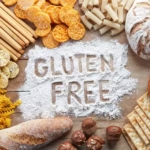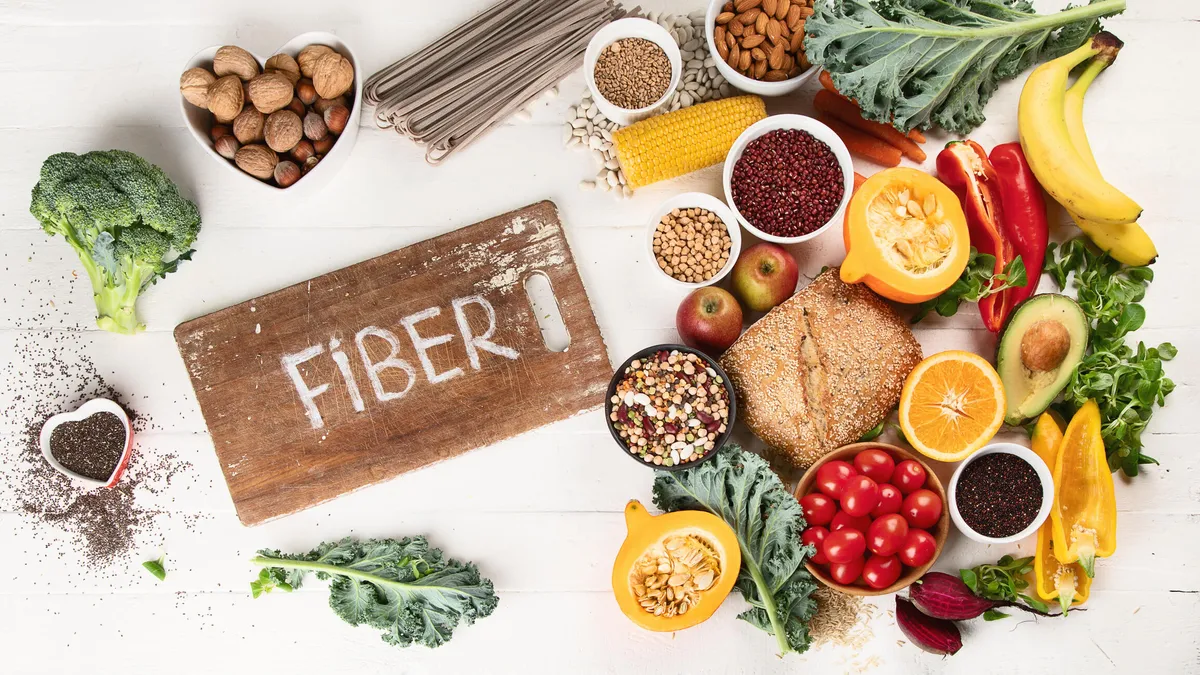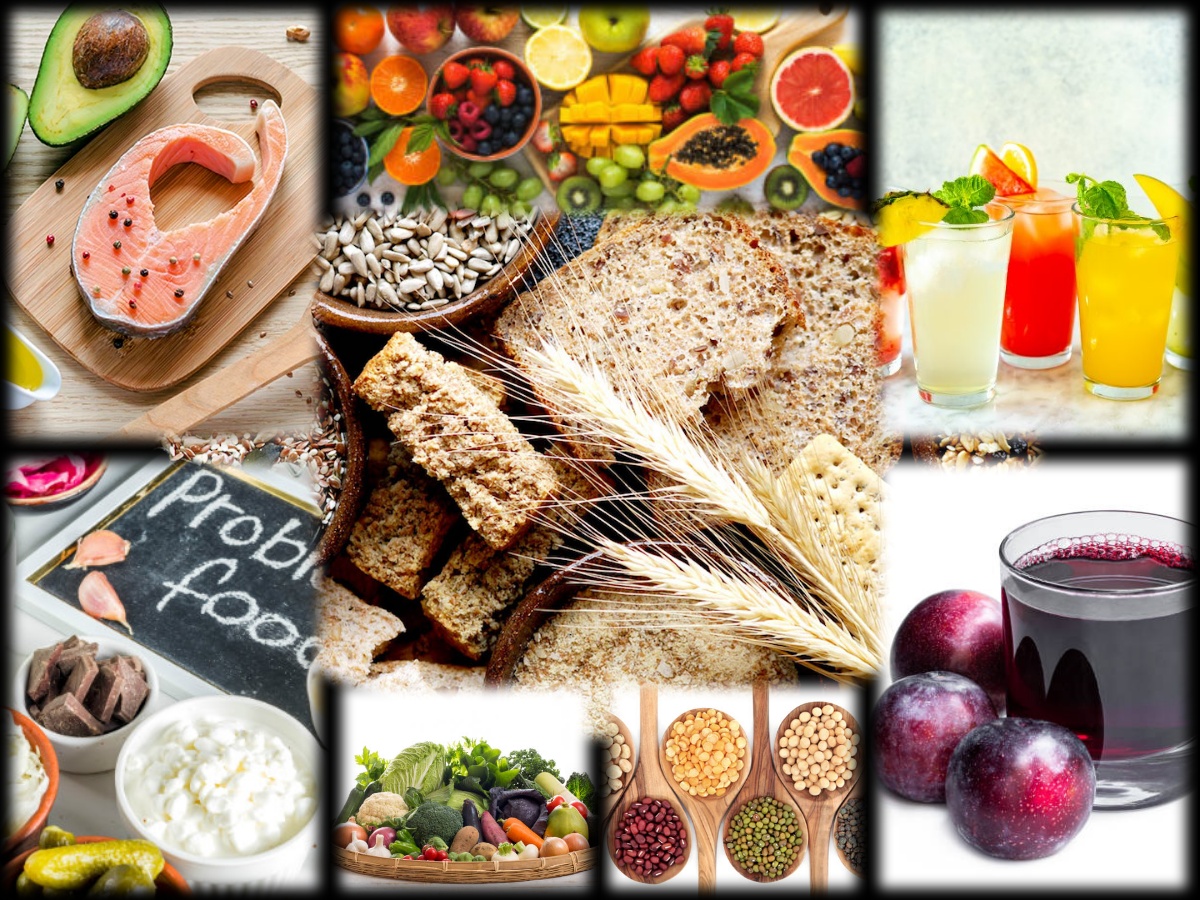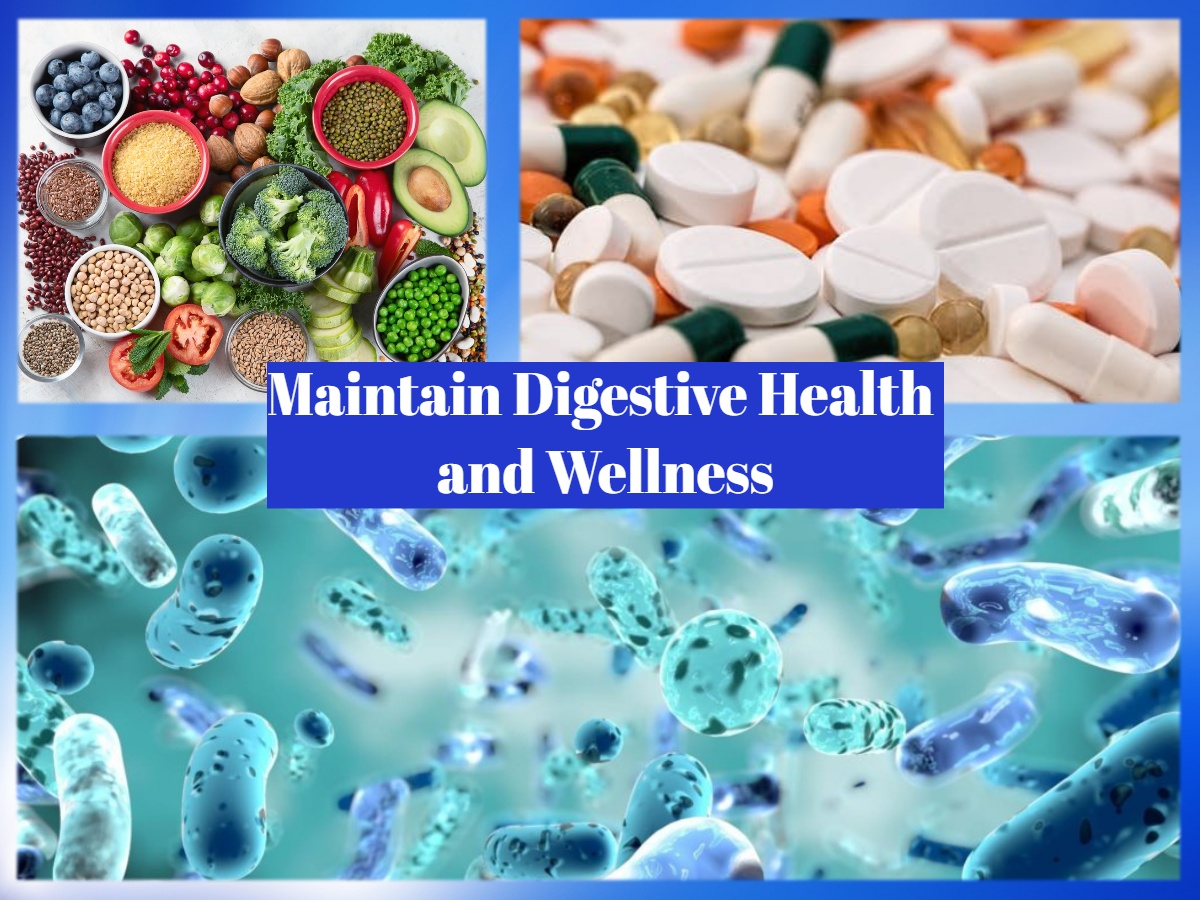Digestive health is a cornerstone of overall wellness, often overlooked in the hustle and bustle of daily life. It’s the secret garden from which our body’s health flourishes, nourishing us from the inside out. This guide is your compass to navigating the complex but fascinating world of digestive health, empowering you with the knowledge and tools to nourish this inner garden, leading to a life of vitality and well-being.
Table of Contents
Understanding Your Digestive System
At the core of your well-being lies your digestive system, a sophisticated network that transforms the food you eat into the energy your body needs to thrive. This intricate system is not just about digesting food; it plays a pivotal role in immune function, nutrient absorption, and even emotional health. To appreciate the magic of digestion, let’s embark on a journey from the moment food enters your body to when waste is expelled, highlighting the critical functions and how you can support its optimal performance.
The Mouth: The Beginning of Digestion Digestion begins in the mouth, where the physical and chemical breakdown of food starts. Chewing breaks food into smaller pieces, making it easier to digest, while saliva, rich in enzymes, begins the chemical process of breaking down carbohydrates. This initial step underscores the importance of mindful eating and thorough chewing for optimal digestion.
The Esophagus: Gateway to the Stomach Once food is sufficiently broken down, it travels down the esophagus, a muscular tube that connects the throat to the stomach. A series of coordinated muscle contractions, known as peristalsis, propels the food forward. The lower esophageal sphincter then opens to allow food into the stomach, showcasing the body’s precise control mechanisms that ensure food moves in the right direction.
The Stomach: A Powerful Mixer In the stomach, food meets gastric juices, a potent mix of hydrochloric acid and digestive enzymes. This acidic environment breaks down food into a semi-liquid form called chyme. The stomach’s muscular walls contract to mix food with these digestive juices, further demonstrating the mechanical aspect of digestion. Here, proteins begin their breakdown, emphasizing the need for a balanced diet that includes adequate protein for efficient digestion.
The Small Intestine: Nutrient Absorption Central The journey continues into the small intestine, where the bulk of nutrient absorption occurs. Bile from the liver and digestive enzymes from the pancreas further break down food, allowing nutrients to be absorbed into the bloodstream. The small intestine’s lining, covered in villi and microvilli, maximizes nutrient absorption through its vast surface area. This stage highlights the importance of a nutrient-rich diet for effective nutrient uptake.
The Large Intestine: Water Absorption and Waste Formation What remains undigested moves into the large intestine, where water is absorbed, and waste is formed. The large intestine also houses a vast colony of bacteria, known as the gut microbiota, which plays a crucial role in health by breaking down certain substances, synthesizing vitamins, and protecting against pathogens. The health of your gut microbiota can be enhanced through a diet rich in fiber and fermented foods, illustrating the link between diet, digestion, and overall health.
The Rectum and Anus: The Final Exit The final stage of digestion occurs when the rectum stores waste until it’s expelled through the anus. This process underscores the importance of regular bowel movements for removing waste and toxins from the body, highlighting fiber’s role in promoting digestive health.
Supporting Your Digestive System Understanding your digestive system’s workings is the first step toward supporting its health. Eating a balanced diet rich in fiber, staying hydrated, managing stress, and regular exercise can all contribute to a smoothly running digestive system. By appreciating and taking care of this complex system, you nurture your entire body’s health, paving the way for a life of vitality and wellness.
In nurturing our digestive health, we unlock a foundation of overall well-being, demonstrating the profound truth that to flourish in health, we must indeed “flourish from within.”

The Building Blocks of Digestion
Carbohydrates: The Primary Energy Source Carbohydrates are the body’s main source of energy. They begin breaking down in the mouth through saliva and continue this process in the small intestine, where they are ultimately absorbed as glucose. Complex carbohydrates, such as whole grains and vegetables, are particularly beneficial because they contain fiber. Fiber aids digestion by adding bulk to stool and facilitating regular bowel movements, illustrating its importance in preventing constipation and maintaining a healthy digestive tract.
Proteins: The Building Blocks of Life Proteins, composed of amino acids, are crucial for repairing tissues and supporting immune function. The stomach plays a significant role in protein digestion, where enzymes and hydrochloric acid initiate the breakdown of protein into smaller peptides. Further digestion and absorption of amino acids occur in the small intestine. A diet sufficient in protein is essential for the maintenance and repair of the body, including the cells of the digestive tract.
Fats: Essential for Nutrient Absorption Fats are digested primarily in the small intestine with the help of bile, which emulsifies fats, and lipase enzymes, which break them down into fatty acids and glycerol. Besides being a concentrated energy source, fats are vital for the absorption of fat-soluble vitamins (A, D, E, and K) and provide essential fatty acids that the body cannot produce on its own. Including healthy fats in your diet supports not just digestion but overall health by ensuring the absorption of these crucial vitamins.
Vitamins and Minerals: Catalysts in Digestive Health Vitamins and minerals, while not providing energy themselves, play critical roles as catalysts in various biochemical processes, including those involved in digestion. For example, vitamin C aids in the absorption of iron, while B vitamins are essential for converting food into energy. A varied and balanced diet ensures that these micronutrients support the body’s digestive and overall health effectively.
Water: The Unsung Hero of Digestion Water may not be a nutrient in the traditional sense, but its role in digestion is indispensable. It helps dissolve soluble fiber, making it easier for the body to process. Water also aids in the transportation of nutrients and waste, facilitating smooth bowel movements and preventing constipation. Staying hydrated is crucial for maintaining the fluid balance necessary for efficient digestion.
Supporting Digestion Through Diet To support the digestive process, incorporating a balanced diet rich in whole foods is crucial. This includes:
- A variety of fruits and vegetables for fiber, vitamins, and minerals.
- Whole grains for complex carbohydrates and more fiber.
- Lean proteins for their amino acids.
- Healthy fats, such as those from avocados, nuts, and olive oil, for essential fatty acids and vitamin absorption.
- Ample water intake to facilitate the entire digestive process.
By understanding and nourishing the building blocks of digestion, we can significantly enhance our digestive health, leading to improved overall well-being. A balanced diet, rich in these essential nutrients, lays the foundation for a healthy digestive system, enabling our bodies to flourish from within.

The Impact of Diet on Digestion
Nutrient-Dense Foods and Digestion: Consuming a variety of nutrient-dense foods is fundamental for optimal digestion. These foods provide the essential vitamins, minerals, and antioxidants that our body needs to function correctly. Fruits, vegetables, lean proteins, whole grains, and healthy fats contain the nutrients necessary for the digestive system to break down food, absorb nutrients, and eliminate waste efficiently.
Fiber: The Digestive System’s Friend :Fiber plays a pivotal role in digestive health. Found in whole grains, fruits, vegetables, and legumes, fiber adds bulk to our stool, facilitating smoother transit through the digestive tract. It also acts as a prebiotic, feeding beneficial gut bacteria and promoting a healthy microbiome. A diet high in fiber can help prevent constipation, maintain bowel health, and reduce the risk of digestive conditions.
The Role of Hydration in Digestion: Water is essential for digestion. It helps dissolve fats and soluble fiber, allowing these substances to pass through the intestines more easily. Adequate hydration also ensures that the body can produce enough saliva and digestive juices, further aiding the digestive process. Incorporating plenty of fluids, especially water, into your diet is crucial for maintaining digestive health.
Processed Foods and Digestive Health: On the other end of the spectrum, processed foods can have a detrimental impact on digestion. These foods often contain additives, preservatives, and high levels of sugar and fat that can disrupt the delicate balance of the gut microbiome, leading to issues like bloating, gas, and inflammation. Minimizing the intake of processed foods and opting for whole, unprocessed foods can significantly improve digestive health.
The Importance of Balanced Meals: Eating balanced meals that include a mix of carbohydrates, proteins, and fats is crucial for digestion. Each macronutrient plays a specific role in the digestive process, and a balance of these nutrients ensures that the digestive system can function efficiently. For example, fats slow down the digestive process, providing a steady release of energy, while proteins require specific enzymes for digestion.
Mindful Eating and Digestive Health: How we eat can be just as important as what we eat. Mindful eating, which involves eating slowly and without distraction, allows for better chewing and easier digestion. It also enables us to tune into our body’s hunger and fullness signals, preventing overeating which can strain the digestive system.
Personalized Nutrition for Digestive Health : It’s important to remember that individual responses to foods can vary widely. Foods that support digestion in one person may cause discomfort in another. Listening to your body and possibly working with a healthcare professional or a dietitian can help you tailor your diet to support your unique digestive health needs.

Key Factors Influencing Digestive Health
Diet and Nutrition: The Foundation of Digestive Health At the heart of digestive health lies our diet. The types of food we consume directly impact the efficiency and comfort of our digestion. High-fiber foods, such as fruits, vegetables, and whole grains, promote regular bowel movements and prevent constipation. On the other hand, a diet high in processed foods and low in fiber can lead to various digestive issues, including bloating and irregularity. Balancing macronutrients (carbohydrates, proteins, and fats) and incorporating a diverse range of micronutrients are crucial for maintaining a healthy digestive system.
Hydration: The Unsung Hero of Digestion Water plays a pivotal role in digestion, from aiding the breakdown of food in the stomach to ensuring smooth passage through the intestines. Adequate hydration helps dissolve fats and soluble fiber, allowing these substances to pass through the body more easily. Conversely, dehydration can lead to digestive discomfort, highlighting the importance of regular fluid intake for digestive health.
Physical Activity: Keeping the Digestive System in Motion Exercise is another critical factor that influences digestive health. Regular physical activity helps stimulate intestinal movements, known as peristalsis, which are essential for moving food through the digestive tract. Moreover, exercise has been shown to reduce the risk of digestive disorders, such as colon cancer, gastroesophageal reflux disease (GERD), and diverticulosis.
Stress Management: The Gut-Brain Connection The digestive system is incredibly sensitive to stress, due to the intricate connection between the gut and the brain, known as the gut-brain axis. Stress can cause alterations in gastrointestinal secretions and lead to spasms in the gastrointestinal tract, affecting digestion. Managing stress through mindfulness, meditation, or other relaxation techniques can significantly improve digestive health.
Sleep Quality: Rest for Digestive Renewal Sleep plays a crucial role in the body’s healing and renewal processes, including digestion. Poor sleep patterns can affect hormone levels, leading to changes in appetite, increased stress, and ultimately, digestive issues. Ensuring a regular, high-quality sleep schedule supports digestive health and overall well-being.
Medications and Supplements: Double-Edged Swords Certain medications, including antibiotics, non-steroidal anti-inflammatory drugs (NSAIDs), and some antidepressants, can have side effects that impact digestive health. While sometimes necessary for treating health conditions, it’s essential to be aware of these potential impacts and discuss them with a healthcare provider. Similarly, dietary supplements, especially those aimed at improving digestive health, like probiotics, can be beneficial but should be used judiciously and in consultation with a healthcare professional.
Alcohol and Smoking: Adverse Impacts on Digestion Excessive alcohol consumption and smoking can both negatively affect digestive health. Alcohol can irritate the stomach lining, leading to inflammation and ulcers, while smoking has been linked to a host of digestive disorders, including GERD, peptic ulcers, and liver diseases. Moderation or cessation of these habits is beneficial for digestive and overall health.

Symptoms of Digestive Distress
1. Bloating and Gas Bloating and gas are common symptoms of digestive distress, often resulting from the fermentation of food by bacteria in the large intestine. While occasional gas and bloating are normal, persistent or severe cases can indicate food intolerances, such as lactose or gluten intolerance, or conditions like irritable bowel syndrome (IBS).
2. Constipation Constipation is characterized by infrequent bowel movements, difficulty passing stools, or the sensation of incomplete evacuation. It can be caused by a low-fiber diet, insufficient fluid intake, lack of physical activity, or stress. Chronic constipation may also signal more serious conditions, such as obstructive bowel disease or thyroid issues.
3. Diarrhea Diarrhea, defined as loose, watery stools occurring more frequently than usual, can result from infections, food intolerances, medications, or digestive disorders like Crohn’s disease or ulcerative colitis. While acute diarrhea often resolves on its own, chronic diarrhea warrants medical attention to determine its cause and prevent dehydration.
4. Heartburn and Acid Reflux Heartburn, a burning sensation in the chest or throat, occurs when stomach acid flows back into the esophagus. This symptom, often associated with acid reflux or gastroesophageal reflux disease (GERD), can be triggered by certain foods, obesity, smoking, or stress.
5. Nausea and Vomiting Nausea and vomiting are symptoms that can stem from a wide range of causes, including food poisoning, viral infections, pregnancy, motion sickness, or more serious gastrointestinal disorders. Persistent or recurrent nausea and vomiting require medical evaluation to identify and treat the underlying cause.
6. Abdominal Pain Abdominal pain can vary in intensity, location, and duration, pointing to various digestive issues. Causes range from transient problems like gas or indigestion to more severe conditions such as appendicitis, gallstones, or ulcers. Sudden, severe abdominal pain should be treated as a medical emergency.
7. Changes in Bowel Habits Significant changes in bowel habits, including the appearance, frequency, and consistency of stools, can indicate digestive distress. Black, tarry stools or the presence of blood may suggest bleeding in the GI tract, while pale stools could indicate bile duct obstruction. Such changes warrant prompt medical attention.
8. Unexplained Weight Loss Losing weight without trying can be a symptom of digestive distress, particularly if accompanied by other GI symptoms. It may indicate malabsorption of nutrients due to conditions like celiac disease, chronic pancreatitis, or cancer.
Recognizing and responding to the symptoms of digestive distress is key to maintaining digestive health and overall wellness. While some symptoms can be managed with dietary and lifestyle changes, persistent or severe signs should prompt a visit to a healthcare provider for a thorough evaluation and appropriate treatment plan. Early intervention can prevent complications and improve quality of life, reinforcing the importance of paying attention to our body’s signals.
The Path to Improved Digestive Health
Prioritize a Fiber-Rich Diet The cornerstone of digestive health is a diet rich in fiber. Dietary fiber, found in fruits, vegetables, whole grains, and legumes, helps regulate bowel movements by adding bulk to the stool and promoting its passage through the digestive tract. Aim for a diverse intake of fiber to support the growth of healthy gut bacteria, reduce the risk of constipation, and improve overall digestive function.
Stay Hydrated Water is essential for digesting food and dissolving nutrients so they can be absorbed by the body. Adequate hydration helps maintain the balance of bodily fluids and prevents constipation by softening stools. Aim to drink at least 8 glasses of water a day, or more if you are physically active or live in a hot climate.
Incorporate Probiotics and Prebiotics Probiotics are live bacteria that are beneficial for your digestive system, found in fermented foods like yogurt, kefir, sauerkraut, and kombucha. Prebiotics, on the other hand, are a type of fiber that feeds the good bacteria in your gut, found in foods like bananas, onions, garlic, and asparagus. Together, probiotics and prebiotics support a healthy gut microbiome, which is crucial for optimal digestion and overall health.
Limit Processed Foods and High-Fat Diets Processed foods and high-fat diets can slow down digestive processes and contribute to various digestive issues, including heartburn and constipation. Focus on whole, nutrient-dense foods and healthy fats like those found in avocados, nuts, and olive oil to support digestion.
Manage Stress Levels The gut is often referred to as the “second brain” due to the gut-brain axis, a communication network that links your digestive system and brain. High levels of stress can impact this connection, leading to changes in digestive function. Incorporating stress-reduction techniques such as yoga, meditation, and deep-breathing exercises can help maintain digestive harmony.
Regular Physical Activity Exercise not only contributes to overall physical health but also aids digestion by helping food move through the digestive system. Regular, moderate exercise can help reduce the risk of constipation and keep your digestive system functioning smoothly.
Mindful Eating Practices Eating quickly or while distracted can lead to overeating and indigestion. Practice mindful eating by paying attention to the taste, texture, and aroma of your food, and chewing thoroughly. This can help improve digestion and enhance your enjoyment of meals.
Monitor Your Body’s Response to Food Individuals can have different sensitivities or intolerances to foods, such as lactose or gluten, which can cause digestive discomfort. Keeping a food diary can help identify potential triggers and guide dietary choices that support digestive health.
Regular Health Check-ups Regular check-ups with a healthcare provider can help prevent and manage conditions that affect digestive health, such as acid reflux, ulcers, or irritable bowel syndrome (IBS). Don’t hesitate to seek professional advice if you experience persistent digestive issues.

Avoiding Common Digestive Health Pitfalls
Overlooking the Importance of Fiber A common mistake is not consuming enough dietary fiber, which is crucial for regular bowel movements and maintaining a healthy gut microbiome. Ensure your diet includes a variety of fiber-rich foods such as fruits, vegetables, whole grains, and legumes. These not only aid digestion but also help prevent constipation and reduce the risk of digestive diseases.
Neglecting Hydration Insufficient fluid intake can lead to dehydration, making stools hard and difficult to pass, which is a primary cause of constipation. To avoid this, aim to drink at least 8 glasses of water a day, and consider more if you’re active or live in a hot climate. Remember, beverages like caffeine and alcohol can dehydrate, so balance these with plenty of water.
Skipping Meals or Eating Irregularly Irregular eating habits can disrupt your digestive system, leading to issues like bloating, gas, and acid reflux. Try to eat regular meals and snacks at similar times each day to keep your digestive system running smoothly.
Overindulgence in Processed Foods Processed foods are often high in fats, sugars, and additives but low in nutrients and fiber, which can disrupt digestive health. Minimize your intake of processed foods and opt for whole, nutrient-dense foods to support digestion and overall health.
Ignoring Food Intolerances Continuing to eat foods that you are intolerant to can cause significant digestive discomfort, including bloating, gas, diarrhea, and constipation. If you suspect food intolerance, consider keeping a food diary to identify triggers and discuss your findings with a healthcare professional for personalized advice.
Underestimating the Impact of Stress Chronic stress can wreak havoc on your digestive system, leading to issues like IBS, ulcers, and acid reflux. Incorporate stress-reduction techniques such as mindfulness, meditation, or gentle exercise into your routine to help manage stress levels and support digestive health.
Lack of Physical Activity A sedentary lifestyle can slow down the digestive process, leading to constipation and bloating. Regular physical activity helps keep food moving through your digestive system, so aim for at least 30 minutes of moderate exercise most days of the week.
Ignoring the Signs of Digestive Distress Dismissing or normalizing digestive symptoms can delay the identification and treatment of potential digestive disorders. Pay attention to your body and consult a healthcare provider if you experience persistent symptoms such as abdominal pain, bloating, or changes in bowel habits.
Conclusion
Cultivating a healthy digestive system is akin to tending a garden; it requires care, attention, and the right nutrients to flourish. By understanding the intricacies of our digestive system and adopting practices that support its health, we can unlock the door to improved well-being and vitality. Let this guide be the first step on your journey to flourishing from within.
FAQs
- What are the best foods for digestive health? Foods rich in fiber, such as fruits, vegetables, and whole grains, along with fermented foods like yogurt and kefir, are excellent for digestive health.
- How much water should I drink to aid digestion? Aim for at least 8-10 glasses of water a day, but this can vary based on your activity level and environment.
- Can stress really affect my digestive health? Yes, stress can significantly impact your digestive system, leading to issues like irritable bowel syndrome (IBS) and indigestion.
- How often should I exercise for optimal digestive health? Engaging in moderate exercise for at least 30 minutes a day can greatly improve your digestive health.
- When should I seek professional help for digestive issues? If you experience persistent symptoms such as severe abdominal pain, unexplained weight loss, or blood in your stool, it’s important to consult a healthcare provider.










